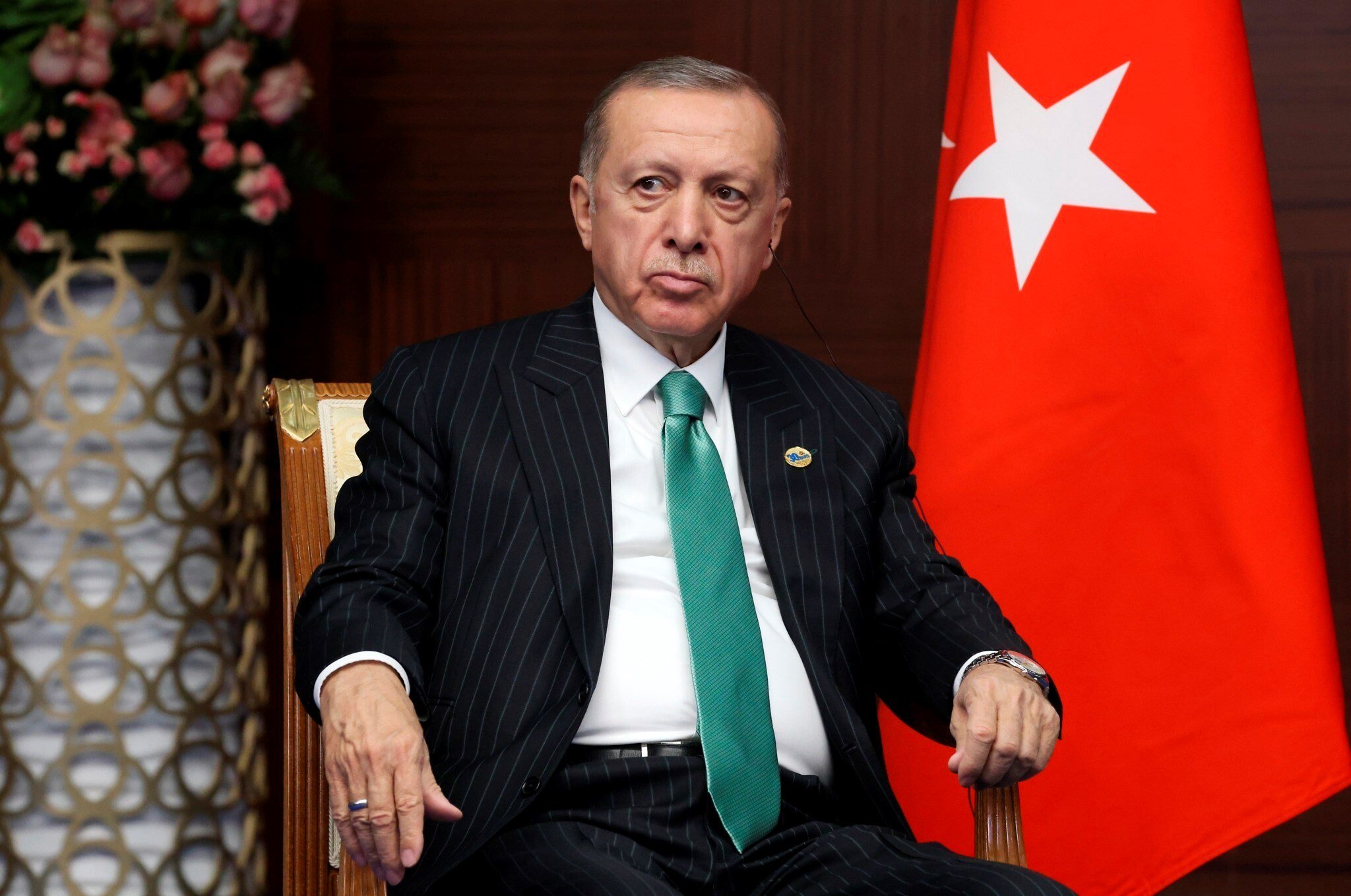Erdogan reviving Ataturk-era Turkey, waging wars and claiming hegemony
The AKP barely passes 30% of popular support as Erdogan still amps up preparations to enter Syria and dissolve Kurdish militias, which Turkey views as tied to the Kurdistan Workers’ Party (PKK) guerrillas.
-

Turkish President Recep Tayyip Erdogan (AP)
The Turkish presidential election is set to take place on June 23 and is anticipated to be the most polarized this new year, determining the fate of 85 million citizens in the nation of 3 continents: Europe, the Middle East, and Asia.
Although the election is still six months away, Erdogan's conservative Justice and Development Party (Adalet ve Kalkinma Partisi, or AKP), which came to power in 2002, may face a difficult challenge.
The country is already dealing with high inflation and a depreciation of the Turkish lira against the US dollar.
The AKP is barely passing 30% of popular support, according to recent polls in Turkey. Despite that, Erdogan is still amping up preparations to enter Syria and dissolve Kurdish militias, which Turkey views as tied to the Kurdistan Workers’ Party (PKK) guerrillas.
He has also threatened to strike its NATO ally Greece over the regional disputes of Cyprus, alleged “militarization” of Greek islands, and expansion in the Aegean Sea.
Turkish Defense Minister Hulusi Akar accused Greece on Monday of sabotaging bilateral meetings with Turkey, which intend to be for trust-building and cooperation in NATO.
Greece took advantage of the meetings to present its problems "as Turkey's issues in its relations with NATO, the US, and EU," according to Akar, while simultaneously attempting to steer public attention away from domestic scandals. After Greek politicians' called Turkey a threat, Akar responded by asserting that his country is a reliable ally and poses no threat.
Erdogan placed Turkey as an irreplaceable mediator between Russia and Ukraine, proven in the most recent Black Sea Grain Deal initiative and by hosting talks between US and Russian security officials.
Not only so, but he has worked both sides by supplying Kiev with arms and simultaneously safeguarding trade and energy ties with Russia.
History repeats itself
Istanbul Mayor Ekrem Imamoglu from the Republican People’s Party (CHP) was sentenced by a court last month to more than two years in prison, which prevented him from practicing politics for the same period, on charges of insulting members of the Supreme Electoral Council in 2019.
The Istanbul Mayor is among a handful of opposition leaders that polls show could beat Erdogan in a head-to-head race during the presidential race next June. Thousands of Turks gathered in a square in the center of Istanbul last month to protest the political ban against the opposition mayor of the city.
In light of that, the US State Department expressed that it is "deeply troubled and disappointment" at the possibility of excluding one of Erdogan's biggest rivals from the political scene.
Germany described the decision as "a heavy blow to democracy," while France urged Turkey "reverse its slide away from the rule of law, democracy, and respect for fundamental rights."
Erdogan denied his involvement with the verdict against Imamoglu, as he said: "What is behind the storm sparked by a verdict these past few days? This debate has nothing to do with us - neither with me nor with our nation."
It is worth recalling that Erdogan was a former Istanbul mayor, who was sentenced to a year in jail for reading an alleged Islamist poem in 1994 and was prohibited from running for office until further notice.
Millet, iradesine sahip çıktı.
— Ekrem İmamoğlu (@ekrem_imamoglu) December 15, 2022
Bugün Saraçhane'de bu iradeye sahip çıkan kıymetli liderlerimize, vekillerimize, belediye başkanlarımıza ve bizi hiçbir zaman yalnız bırakmayan İstanbullulara teşekkürler. Hiçbir yargı oyunu, hiçbir engelleme çabası bizi yolumuzdan döndüremez. pic.twitter.com/jsoHBnDHht
A new world order?
In his political lifetime, Erdogan went from having no problems with neighboring nations to full-launch attacks on Syria and Greece. But, a ground execution of military operations in Syria could come and bite back as it already triggers US and Russian reactions against it.
In a meeting with Russian President Vladimir Putin last month, Erdogan confirmed that it is "important to clear the (Kurdish fighters) from the border to a depth of at least 30 kilometers," noting it was "a priority".
Erdogan has been threatening to conduct a new military incursion into northern Syria to move out Kurdish forces, which he blames for the November bomb blast that killed six people in Istanbul.
The Turkish President also said his country is committed to destroying the Kurdistan Workers' Party (PKK) "until its last militant is neutralized" and raised the possibility of conducting a ground operation soon.
It is worth noting that on November 20, Turkey launched airstrikes that targeted military bases belonging to the PKK and its armed wing, the YPK, in northern Syria and Iraq.
This year, November will mark the 100th anniversary of Mustafa Kemal Ataturk’s foundation of Turkey from the remains of the Ottoman Empire.
It seems like Erdogan is taking advantage of the current multipolar world order between the US and Russia in order to replace both and make Turkey the global hegemonic power as it was back in the days of Ataturk.
In the midst of all of this, the EU stands on the sidelines, watching the fight as it struggles with inflation and the energy crisis.
Turkey is the EU's largest trade partner, but after delaying Turkey's entry into the EU bloc, it has lost influence in Ankara, and Belgium now has to persuade and buy off Turkey in order to keep the nearly 4 million Syrian refugees from crossing into Greece.

 5 Min Read
5 Min Read










